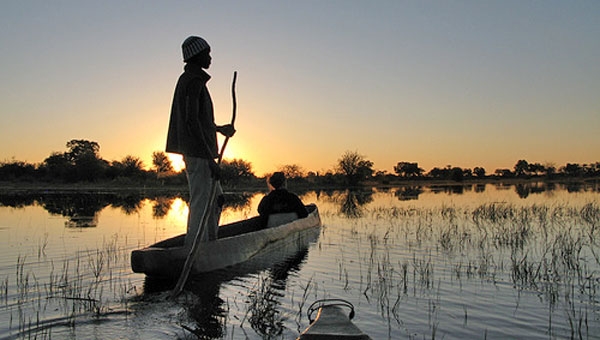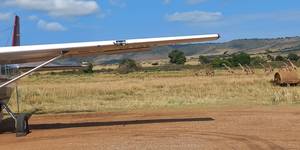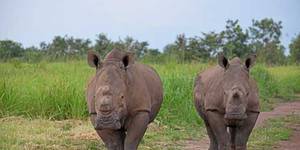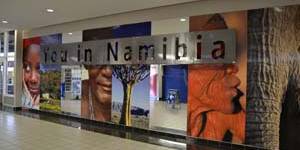Like this article?
Go on, give it a kudu!

Published on December 12 2013
Written by:
Fran
758 views
Botswana is widely known for its prestigious national parks: Kalahari, Kgalagadi and Chobe. In Botswana, one of the world’s largest and oldest elephant herds roam, among hundreds of other prominent and vulnerable species. Apart from wildlife, the parks play an important part in preserving the indigenous San or Bushmen culture – their ancestors lived off the Botswana land for literally thousands of years. And in regional terms, Botswana has a critical role in the sustaining African wildlife, free of habitat threats and poaching. But all of this came crashing down as allegations of fracking activities, turned out to be the shocking truth.
Hydraulic fracturing, or fracking, is a highly debated mining process. What happens is that rock is mechanically fractured under the pressure of liquid (often water-based but with chemical components, although acid mixtures are also possible). These fractures allow gas or petroleum to rise to the well surface, from where it is extracted for economic benefits. Gas and oil are fast becoming scarce resources, and therefore the industry is increasingly lending itself to extreme measures for sustaining the global demand. Traditionally, Botswana was not known for any potentially fruitful oil or gas reserves. The country imports its fuels from South Africa and other surrounding countries. Hence why it was rather unexpected when the first allegations of fracking surfaced. Late November 2013, Botswana’s government formally announced: no mining licenses were granted for any natural gas or coalbed gas mining in Botswana. But next thing we knew, drilling was happening in the Kalahari National Park.
Because of its severe environmental impacts, fracking is widely fought with opposition coming from both the public and industry experts. It is unsustainable, and can cause lasting environmental harm. Fracking in a national park, and parks of such environmental and cultural significance as the Botswana parks, are therefore expected to cause major public outcry. But as the details of Botswana’s fracking operations started to emerge, the picture became increasingly gloomy. Not only were rights assigned to oil industry giants (including Australian and African companies), but the local Bushmen were completely oblivious to any plans, let alone actions. Exploration drilling started, while reporters and journalists uncovered that local people, including the Bushmen, were not consulted or involved by the government or mining companies in any way. Maps emerged showing that large parts of game reserves have already been leased to oil and gas companies – land where the Bushmen has ancestral rights.
As the details were uncovered, maps came to the forefront showing where exploration drilling is planned, and now already taking place. Three ecologically sensitive environments are of particular concern: the Central Kalahari Game Reserve, the Kgalagadi Transfrontier Park, and the Chobe National Park. Fracking is specifically known for polluting groundwater. Yet uncontaminated groundwater is the single factor that guarantees elephant survival on their annual migratory routes. Contaminated groundwater could severely impact elephants, and other wildlife.
In early December, Botswana’s Minister of Minerals, Energy and Water came under pressure and acknowledged that permission was granted for some fracking activities, but whether these permissions are formal licenses, are grossly unclear.
Yet one thing is clear, and always has been: national parks are aimed at conserving nature, wildlife, and culture. Compromising decades of wildlife conservation, protection and stabilizing of vulnerable wildlife and bird communities should not be harmed in such ways. Tourism, whether traditional safaris or eco-adventures, contribute to conservation and should be the only economic activities allowed among national parks of global significance.
Photo credits: some rights reserved by Greenwich Photography via flickr [Creative Commons]
Has been on: 11 safaris
Seeing beyond the average tourist routes and experiencing local life is my type of travel! Living in South Africa I'm an environmentalist at heart, and I continue to marvel at the beauty of the African continent.
© Your African Safari Ltd, All rights reserved.
Your African Safari is a safari-planning and safari review site. It was created to help support a healthy African wildlife population. All reviews are vetted before being approved and only ethical tours are published

Using charter flights on your next safari
Published on December 22 2025
By: yourafricansafari.com

Garamba National Park—an anchor of hope in the Democratic Republic of Congo
Published on January 09 2025
By: R.W.

Namibia imposes new visa requirements
Published on July 25 2024
By: yourafricansafari.com